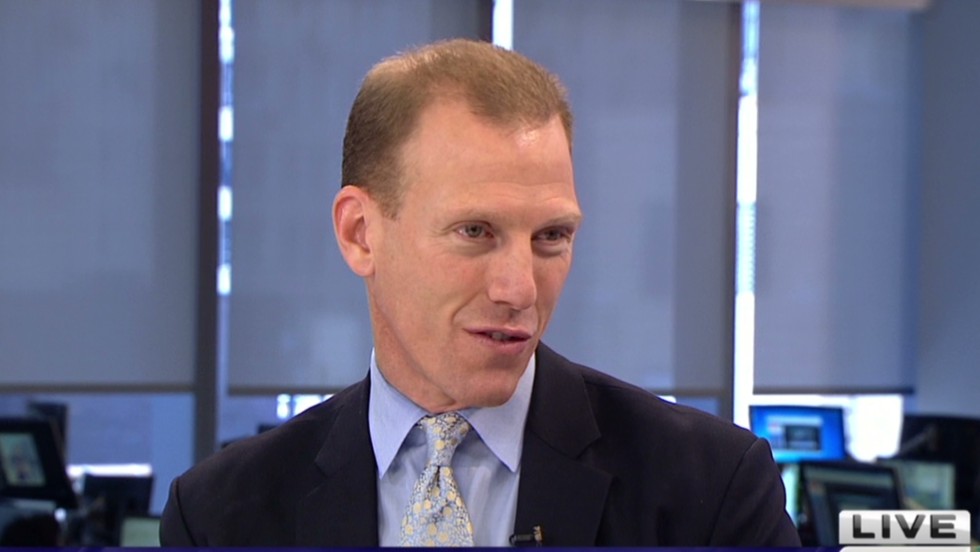It's time to stop Chinese theft
By Claudia Tenney
Updated 7:26 AM ET, Mon December 12, 2016
Story highlights
- According to a 2015 estimate, China steals some $360 billion annually from American companies through hacking
- Claudia Tenney: Trump must implement policies that deter cyberattacks and penalize Chinese companies for their theft
Claudia Tenney, a Republican, is the Congresswoman-elect for New York's 22nd Congressional District. She is an attorney and the co-owner of a manufacturing business in upstate New York. The views expressed in this commentary are her own.
(CNN)By selecting Iowa Governor Terry Branstad as US Ambassador to China, President-elect Donald Trump chose a man who Chinese President Xi Jinping considers a "friend." But as a friend, Branstad will be the messenger to deliver the hard truth that the days of America bowing and scraping at China's feet are over.
To start, Trump and Branstad should put a quick end to China's economic espionage and outright theft. And make no mistake: China is stealing from the U.S. economy on a staggering scale.

Claudia Tenney
Bill Evanina, a top deputy to Director of National Intelligence James Clapper, estimated last year that the Chinese steal about $360 billion annually from American companies through hacking alone. That is more than three times the value of all US exports to China in 2015 -- and roughly equal to the entire trade imbalance between the United States and China. In fact, it is more than three quarters the value of US exports to all of Asia.
Add in how much intellectual property the Chinese steal the old-fashioned way, with spies embedded in American companies, and the figure climbs by many more billions of dollars per year. Half of the 165 private companies surveyed by the FBI were victims of economic espionage or theft of trade secrets. Those companies suspect that China was to blame for 95% of the attacks. And the problem is only getting worse, with industrial spying and sabotage up 53% in 2015 over 2014.
Then there's China's huge industry of counterfeit goods like knock-off watches, handbags, DVDs and smartphones. That costs foreign companies, many of them American, another $20 billion every year.
So in many ways when Trump says that China is "killing us" on trade, he's right.
Trump's rhetoric has been criticized as anti-free trade. But free-market economists champion property rights, and conservatives and classical liberals view protecting those rights as one of the primary purposes of government. In this sense, Trump's promise to stop the theft is more free-market than the approach of his do-nothing skeptics.
There's nothing virtuous about a government that is passive when foreign entities, some linked to militaries and sovereign states, steal from private businesses.
Of course, as the President-elect points out, when we talk about the theft of intellectual property, we are also talking about the theft of American jobs -- not just high-skilled jobs, like designers of the iPhone or developers of solar technology, but also the millions of low-skilled jobs that intellectual property supports. Indeed, intellectual property theft deprives low-skilled workers of some of their best employment opportunities.
According to one recent study, industries that rely on intellectual property pay low-skilled workers 40% more than industries that are not reliant on I.P., and hire them even during economic downturns. The Department of Commerce estimates that 45 million American workers -- almost one in three US jobs -- rely on intellectual property protections.
Chinese intellectual property theft also robs American companies of the incentive to innovate. For example, the last of the great American steel manufacturers, U.S. Steel, announced in April that it had discovered Chinese-backed hackers stole decades' worth of research on advanced steel-production technologies and turned those discoveries over to Chinese competitors. This raises the question: why pour millions into developing technologies only to have the Chinese steal them and undercut your prices?
Worse yet, much more of this theft is unreported and largely unknown to the authorities, let alone to the public, because embarrassed and victimized companies have little recourse and only see downsides to revealing that they were robbed by the Chinese.
The US government must act to protect American jobs, innovation and national security against these abuses. A good start would be to send a clear signal that there will be real consequences for any entity, state-backed or otherwise, that steals from American companies.
In Trump's cybersecurity speech during the campaign, he outlined a plan to deter potential aggressors with just such a signal. The United States, Trump said, "must possess the unquestioned capacity to launch crippling counter-attacks."
"America's dominance in this arena must be unquestioned," he continued. "Cybersecurity is not only a question of developing defensive technologies but offensive technologies as well."
Degrading and disrupting our attackers' offensive capabilities would show that there's a cost to attacking American businesses.
We can respond to attacks by imposing serious consequences outside cyberspace as well. For instance, the US Treasury and the Department of Commerce should sanction recipients of stolen intellectual property. The International Trade Commission is considering such sanctions in the U.S. Steel case, but offenders should be banned from doing business with American companies and be prohibited from importing products to America until they can prove they have reformed.
Another smart proposal comes from the American Enterprise Institute's recent report on cyberspace strategy, which suggests that we impose penalties when the Chinese blackmail American companies into turning over intellectual property.
Beijing must learn that the United States will defend American jobs and businesses from outright theft through cyberattack and industrial espionage, and Donald Trump appears committed to communicating that message as president.
The damage such crime does to the US economy is real, and Trump is right to focus on it. In a world where our second-largest trading partner is stealing from us more than it buys from us, we must be a lot tougher than scolding it for stepping out of line.



No comments:
Post a Comment
Comments always welcome!